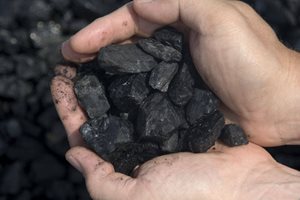A new study has found a huge gap between public perception of the coal industry’s importance to the NSW economy and jobs, and the reality of its contribution to the state’s coffers and its people.
The report, Seeing through the dust: Coal in the Hunter Valley economy, launched by the Australia Institute on Friday, finds that Hunter Valley residents believe the local coal industry employs four times more people than it does, and that coal royalties contribute 10 times more income to the NSW Budget than is the case.
It’s a discrepancy, says the report’s author, Roderick Campbell, that illustrates how successful the industry has been in inflating its importance.
“The coal industry’s public statements invariably emphasise its apparent economic importance. But when the industry is placed in context we see that coal is not the bedrock of the Hunter economy,” Campbell said.
“The reality is that 95 per cent of Hunter workers do not work in the coal industry and only 2 per cent of NSW government revenue comes from coal royalties.”
The misconception that coal is vital to the economy is, of course, not restricted to the Hunter Valley, or even to Australia. In the US, the Obama-backed new EPA regulations to be placed on CO2 emissions from coal-fired power plants have been described as a war on American jobs, economic growth, and GPD.
But as noted US economist and New York Times columnist Paul Krugman wrote in his blog this week, “coal mining accounts for only one-sixteenth of 1 percent of overall US employment; shutting down the whole industry would eliminate fewer jobs than America lost in an average week during the Great Recession of 2007-9.”
As for the so-called “war on coal” – or on coal workers – this happened a generation ago, says Krugman: “waged not by liberal environmentalists but by the coal industry itself,” when it turned to machinery to produce more coal, using far less miners. “And coal workers lost,” he said.
And now, with innumerable reports pointing to coal’s terminal decline, the major new enemy to local coal industries is cost, as the global shift to low-carbon technologies begins to render the fossil fuel uncompetitive.
Back in the Hunter Valley, a subsidiary of Brazilian mining giant, Vale, sacked 500 workers from the Glennies Creek underground and Camberwell open cut mines near Singleton, blaming poor global coal prices for its decision.
The question, says Joe Romm on Climate Progress, is that “given that every major study makes clear that the cost of (climate) action is low, that the new EPA power plant standards could spur investment that would give the ‘US economy a boost,’ …why is there such visceral opposition from conservatives?” And why aren’t people getting the real message about coal?
It’s a good question. And in Australia – where Prime Minister Tony Abbott recently told a Minerals Council gathering that he could think of nothing more damaging to the country’s future that leaving coal in the ground, and warned against the economic dangers of demonising the coal industry – it is a question worth asking.
Contrary to the PM’s claims – and those of the NSW Minerals Council – the Australia Insititute study finds that a smaller coal industry would have only minor impacts on the future Hunter economy, with modelling showing a long-term downsizing to have minimal effects on employment and economic output.
The study also finds that a strong majority (83%) of Hunter Valley residents do not want to see the coal industry expand, while 41 per cent would like to see it decrease or be phased out.
“What the (Australia Institute) report shows is that the Hunter has a diversified, modern economy and that the region’s future isn’t tied to the success of the coal industry,” Campbell said.
And in the Hunter Valley, at least, these facts seem to be sinking in. “Despite residents having a heavily inflated impression of the coal industry’s economic importance, only one in three feels that the industry’s economic contribution outweighs the other costs it imposes on the community,” said Campbell.
“Residents are concerned about the negative effect the industry has on the Hunter’s air quality and health, on water and bushland and its impact on other local industries such as vineyards, horse studs, tourism and agriculture.”











